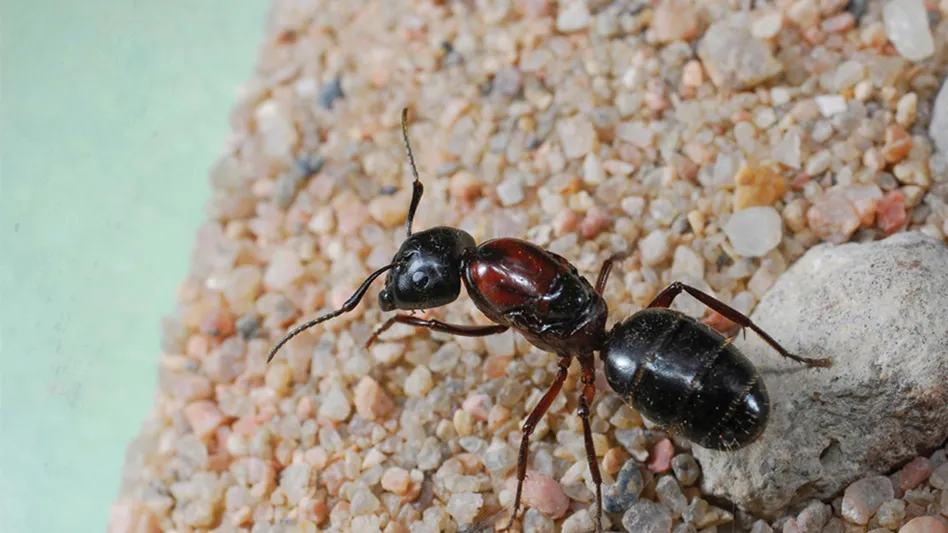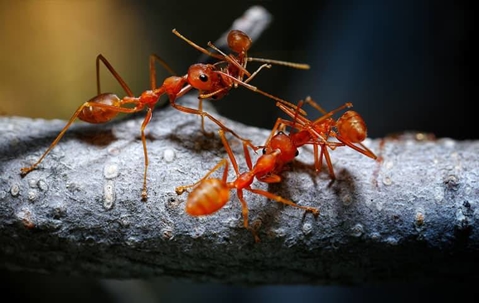Why Select Our Termite Control Services: Professional Solutions for Effective Security
Why Select Our Termite Control Services: Professional Solutions for Effective Security
Blog Article
Ecological Effect of Pest Control: Harmonizing Efficiency With Sustainability
The environmental impact of bug control is a critical issue that needs a delicate equilibrium in between attaining effectiveness in handling bugs and making certain sustainability of our communities. From the use of dangerous chemicals that permeate into our soil and water to the unexpected effects on non-target varieties, the effects of standard parasite control techniques are far-ranging.
Unsafe Chemicals in Parasite Control
The application of harmful chemicals in pest control poses significant environmental and wellness threats that necessitate careful factor to consider and mitigation approaches. Pesticides, herbicides, and insecticides are frequently utilized to eliminate insects, but their prevalent application can bring about unexpected repercussions. These chemicals can contaminate dirt, water resources, and the air, impacting not only the targeted parasites however likewise advantageous insects, wild animals, and people.
To attend to these dangers, integrated insect management (IPM) techniques are being promoted as an extra lasting option. IPM involves a mix of approaches such as biological control, habitat control, and the targeted use pesticides as a last hope (ant control newtonnc). By adopting an all natural method to pest control, we can minimize the ecological and health and wellness impacts connected with unsafe chemicals while properly handling pest populations
Influence on Non-Target Species
Considering the unexpected consequences of parasite control techniques, the influence on non-target types is a vital facet that needs comprehensive analysis. While insect control measures aim to target specific insects, various other organisms in the ecological community may be accidentally affected. Non-target varieties, including helpful insects, birds, animals, and also plants, can suffer indirect or straight harm from chemical applications or organic control methods.
Insecticides designed to fight a specific bug parasite might damage pollinators like or natural predators such as ladybugs. Biological control agents, if not species-specific, can position risks to unintentional targets, interrupting the environmental balance.
To reduce the effect on non-target types, integrated pest management (IPM) strategies that emphasize an all natural strategy to pest control are advised. These approaches prioritize the use of eco-friendly techniques, decreasing injury to beneficial microorganisms while effectively managing pest populaces. Performing complete danger assessments and keeping an eye on the results of pest control initiatives are necessary actions in protecting non-target species and advertising general ecosystem wellness.
Dirt and Water Contamination
Unplanned environmental repercussions of bug control techniques prolong past impacting non-target types, with significant implications for dirt and water contamination - ant control services. Pesticides, herbicides, and chemical plant foods made use of in pest control can leach into the dirt and infect groundwater, posing a risk to both terrestrial and water ecosystems.
Water contamination is one more essential issue associated with insect control methods. Overflow from farming areas treated with chemicals can lug these chemicals right into neighboring water bodies, affecting aquatic organisms and water quality. Contaminants in water sources can have significant repercussions, affecting not only aquatic life but also human health through the consumption of contaminated water or aquatic organisms. To mitigate dirt and water contamination from parasite control tasks, incorporated parasite monitoring techniques that prioritize sustainability and reduce chemical inputs are vital.
Air Pollution From Chemical Use
Exposure to air-borne pesticides during farming applications presents a considerable concern for air contamination control procedures. They can volatilize right into the air and type volatile natural compounds (VOCs) and various other airborne toxins when pesticides are sprayed onto crops - termite control. These chemicals can add to the development of ground-level ozone, a significant component of smoke that can have harmful results on human health and wellness, plant efficiency, and total air high quality. In addition, pesticide drift, where chemicals are carried by the wind to unplanned areas, can cause the contamination of nearby environments and water bodies.

Techniques for Sustainable Bug Control
In the world of farming practices, executing sustainable bug control approaches is paramount for maintaining environmental balance and securing plant returns. Lasting parasite control stresses the use of environmentally friendly methods to manage insect populations efficiently while lessening damage to non-target microorganisms and ecological communities. Integrated Parasite Monitoring (IPM) is an extensively taken on strategy that incorporates organic, social, physical, and chemical control techniques to accomplish long-term pest management solutions.
One key strategy in lasting parasite control is advertising biodiversity within agroecosystems. By improving all-natural enemies of pests, such as parasitoids and killers, farmers can minimize the demand for synthetic pesticides. Plant turning and diversification are also reliable strategies to interrupt pest life cycles and create much less positive conditions for pests to grow. In addition, utilizing pest-resistant crop selections and utilizing techniques like catch cropping can help lower bug pressure without relying greatly on chemical interventions. Inevitably, by integrating these sustainable bug control techniques, farmers can achieve an equilibrium between pest monitoring efficiency and environmental stewardship.
Final Thought
In verdict, the environmental influence of pest control techniques must be very carefully considered to balance performance with sustainability. Damaging chemicals made use of in pest control can result in dirt and water contamination, air pollution, and damage non-target types - ant control. It is vital to apply sustainable bug control approaches to minimize these unfavorable results on the setting and promote a healthier environment for future generations
By taking on a holistic method to pest control, we can lessen the ecological and wellness impacts associated with dangerous chemicals while properly managing pest populations.

To reduce the air contamination triggered by chemical use, it is essential to embrace integrated parasite management approaches that prioritize the use of non-chemical bug control methods, such as crop turning, natural predators, see this here and immune crop ranges. Lasting insect control stresses the use of ecologically pleasant methods to handle bug populations properly while minimizing damage to non-target microorganisms and communities. Integrated Parasite Management (IPM) is a commonly taken on approach that combines biological, cultural, physical, and chemical control approaches to attain long-term insect monitoring remedies.
Report this page